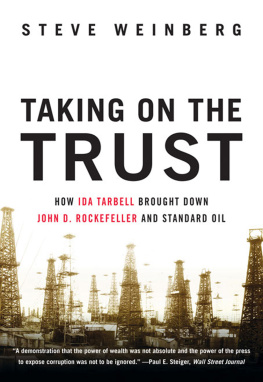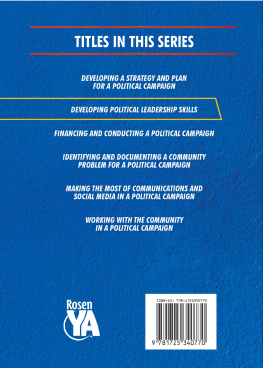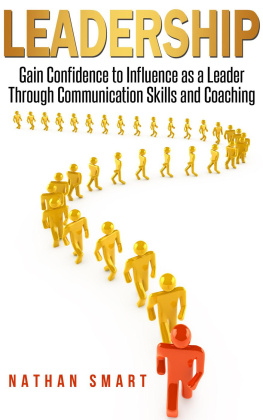
Becoming a TechnicalLeader:
An Organic Problem-SolvingApproach
by
Gerald M.Weinberg
SMASHWORDSEDITION
* * * * *
PUBLISHED BY:
Gerald M. Weinberg onSmashwords
Becoming a Technical Leader:
An Organic Problem-SolvingApproach
Copyright 2010 by GeraldM. Weinberg
All rights reserved. Withoutlimiting the rights under copyright reserved above, no part of thispublication may be reproduced, stored in or introduced into aretrieval system, or transmitted, in any form, or by any means(electronic, mechanical, photocopying, recording, or otherwise)without the prior written permission of both the copyright ownerand the above publisher of this book.
Smashwords Edition LicenseNotes
This ebook is licensed foryour personal enjoyment only. This ebook may not be re-sold orgiven away to other people. If you would like to share this bookwith another person, please purchase an additional copy for eachperson you share it with. If you're reading this book and did notpurchase it, or it was not purchased for your use only, then youshould return to Smashwords.com and purchase your own copy. Thankyou for respecting the author's work.
Dedicated to all of us
Who have ever played
All Y's.
Table of Contents
Preface
Foreword
PART_1_DEFINITION
Chapter_1_What Is Leadership, Anyway?
Chapter_2_Models of Leadership Style
Chapter_3_A Problem-Solving Style
Chapter_4_How Leaders Develop
Chapter_5_But I Can't Because
PART_TWO_INNOVATION
Chapter_6_The Three Great Obstacles toInnovation
Chapter_7._A Tool for Developing Self-Awareness
Chapter_8_Developing Idea Power
Chapter_9_The Vision
PART_THREE_MOTIVATION
Chapter_10_The First Great Obstacle to MotivatingOthers
Chapter_11_The Second Great Obstacle to MotivatingOthers
Chapter_12_The Problem of Helping Others
Chapter_13_Learning to Be a Motivator
Chapter_14_Where Power Comes From
Chapter_15_Power, Imperfection, and Congruence
PART_FOUR_ORGANIZATION
Chapter_16_Gaining Organizational Power
Chapter_17_Effective Organization of Problem-SolvingTeams
Chapter_18_Obstacles to Effective Organizing
Chapter_19_Learning to Be an Organizer
PART_FIVE_TRANSFORMATION
Chapter_20_How You Will Be Graded as a Leader
Chapter_21_Passing Your Own Leadership Tests
Chapter_22_A Personal Plan for Change
Chapter_23_Finding Time to Change
Chapter_24_Finding Support for Change
Epilogue
Bibliography
Preface
When Banzan was walking through a market heoverheard a conversation between a butcher and his customer. "Giveme the best piece of meat you have," said the customer.
"Everything in my shop is the best," replied thebutcher. "You cannot nd here any piece of meat that is not thebest."
At these words Banzan became enlightened.
Paul Reps, "Everything Is Best"from Zen Flesh, Zen Bones
This is a book about enlightenment, bothmine and yours. Mine is still incomplete, but so far has takenrather longer than a walk through the market. This book, forinstance, has been at least fifteen years in the making.
It started around 1970, when Don Gause, DaniWeinberg (my wife), and I spent a summer in Switzerland. Don and Iwere writing a book on problem solving (Are Your Lights On? orHow to Figure Out What the Problem Really Is), and Dani wascontinuing her anthropological research on Swiss peasantcommunities. Over the years, Don and I had been studying successfuland unsuccessful problem-solving efforts, particularly computingprojects. Dani had been studying the ways in which new technologyhad been introduced into peasant communities.
Comparing rotes, we dreamed of a workshopthat would have the maximum possible leverage on the successfulintroduction of new technical system When we compared successfuland unsuccessful systems, we - quickly realized that almost all ofthe successes hinged on the performance of a small number ofoutstanding technical workers. Some of them were consistent sourcesof innovative technical ideas, some were interpreters of otherpeople's ideas. Some were inventors, some were negotiators, somewere teachers, some were team leaders. What distin- guished themfrom their less successful colleagues was a rare combination oftechnical expertise and leadership skills. Today, we would say thatthey were high in innovation, but with sufficient motivational andorganizational skills to use in making ideas effective.
These leaders were not the pure techniciansproduced by the engineering and science schools, nor were they theconventional leaders trained in the schools of management. Theywere a different breed, a hybrid. What they shared was a concernfor the quality of ideas. Like the butcher, they wanted everythingin their shop to be the best. We called them technical leaders.
Don, Dani, and I designed a new leadershipworkshop, called "Technical Leadership in Computer Programming,"which was first given in Australia at the invitation of DennisDavie. Fourteen out of fifteen participants rated it "the mostprofound educational experience I've ever had." The other one saidit was merely "one of the most profound educational experiencesI've ever had." We realized we had found our leverage.
In the years that followed, Daniel Freedmanand a few others joined our team, and the workshop was given tohundreds of would-be technical leaders all over the world. A fewelectrical and mechanical engineers slipped in, as did sometrainers. Except for some technical material, these newcomers foundeverything directly applicable to their work. As a result, wegradually dropped technical material and broadened our audience. Wealso broadened our vision of what was possible. For one thing, wediscovered that this technical leadership style was applicable tomany problems that have nothing to do with technology. We beganhear stories from workshop graduates who had applied it tosituations other than those arising from their technical work.
These people had transformed themselves fromordinary technical supervisors into problem-solving leaders withthe power to make things happen. Many of them didn't understandtheir own transformation. It seemed as if one day they weresupervisors and the next they were leaders, like Banzan in themarketplace. But if leadership were only attained through, asudden, mystical enlightenment, how could one learn to become atechnical leader?
Over the years, the biggest lesson we havelearned from our workshops is that becoming a leader is notsomething that happens to you, but something that you do. Often ina workshop, someone seems to attain a sudden enlightenment, but wehave no more to do with that than the butcher had to do with themoment that completed Banzan's lifelong conversion. Our workshopsdo not teach people to become leaders; they merely give a boost toeach person's unique experiential process of self-development. Thisbook takes the same approach: Consider it as your personalleadership workshop.
From working with systems, I have learnedthat the process of change is always organic: It's never possibleto change just one thing at a time. Each of my behaviors is thesolution to some problem from my past. To learn, I add newbehaviors to serve alongside these valuable old ones. Yet, like aseed, I already have all the behaviors needed to grow, so I merelyneed to cultivate them selectively. I believe that leadershipinvolves a nurturing process, not taking charge of people's lives,so this book is a guide to the process of taking charge of your owndevelopment. Its methods, like the methods of our workshops, areorganic, designed to t with the unique system that is you in a waythat is gentle, realistic, and fun.
Next page












